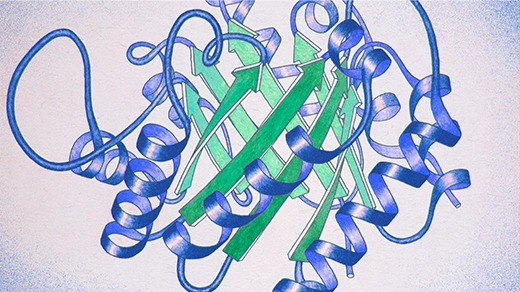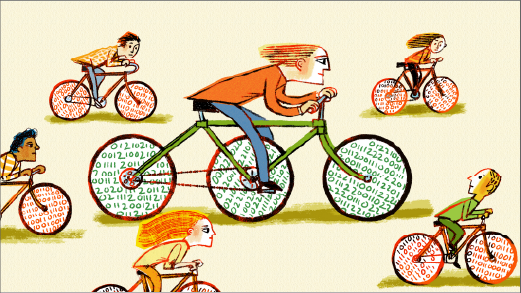What's up in
Explainers
Latest Articles
How Colorful Ribbon Diagrams Became the Face of Proteins
Proteins are often visualized as cascades of curled ribbons and twisted strings, which both reveal and conceal the mess of atoms that make up these impossibly complex molecules.
The Geometric Tool That Solved Einstein’s Relativity Problem
Tensors are used all over math and science to reveal hidden geometric truths. What are they?
How Base 3 Computing Beats Binary
Long explored but infrequently embraced, base 3 computing may yet find a home in cybersecurity.
What Is Analog Computing?
You don’t need 0s and 1s to perform computations, and in some cases it’s better to avoid them.
What Happens in a Mind That Can’t ‘See’ Mental Images
Neuroscience research into people with aphantasia, who don’t experience mental imagery, is revealing how imagination works and demonstrating the sweeping variety in our subjective experiences.
Vacuum of Space to Decay Sooner Than Expected (but Still Not Soon)
One of the quantum fields that fills the universe is special because its default value seems poised to eventually change, changing everything.
What Are Sheaves?
These metaphorical gardens have become central objects in modern mathematics.
What Is Machine Learning?
Neural networks and other forms of machine learning ultimately learn by trial and error, one improvement at a time.
How the Square Root of 2 Became a Number
Useful mathematical concepts, like the number line, can linger for millennia before they are rigorously defined.








